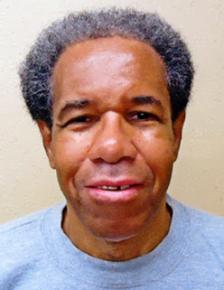Justice for Albert Woodfox and the Angola 3
A decades-old miscarriage of justice in Louisiana must end, writes .
A FEDERAL judge ruled on June 8 that Albert Woodfox, the last member of the Angola 3 still incarcerated, should be immediately released from prison after spending nearly 40 years in solitary confinement.
But the very next day, a higher court issued a stay, delaying justice yet again--at least until a June 19 hearing, while judges decide whether to accept an appeal filed by Louisiana Attorney General Buddy Caldwell, who insists that Woodfox should remain behind bars and face yet another trial, despite the many injustices that have plagued his case.
The first judge, James Brady, ordered Woodfox to be freed unconditionally, arguing that the state can't fairly try him a third time for the murder of a prison guard more than 40 years ago. His first two convictions were thrown out for racial prejudice and lack of evidence. Brady gave five reasons granting Woodfox's habeas corpus appeal:
Mr. Woodfox's age and poor health, his limited ability to present a defense at a third trial in light of the unavailability of witnesses, this Court's lack of confidence in the State to provide a fair third trial, the prejudice done onto Mr. Woodfox by spending over 40 years in solitary confinement, and finally the very fact that Mr. Woodfox has already been tried twice and would otherwise face his third trial for a crime that occurred over 40 years ago.

THE ANGOLA 3--Herman Wallace, Robert King and Woodfox--were already behind bars when 23-year-old prison guard Brent Miller was stabbed to death on April 17, 1972, during a protest by prisoners to demand improvement of the notoriously inhumane conditions at Angola Prison.
Woodfox and Wallace were in Angola serving time for unrelated cases of armed robbery. King was convicted of planning the murder from another jail. A year before Miller's stabbing, Wallace and Woodfox had helped to found a chapter of the Black Panther Party at Angola, and King had established a chapter at the New Orleans prison where he was being held.
The three prisoner-activists participated in hunger strikes, work stoppages and other actions to compel prison officials to improve conditions. Supporters of the Angola 3, who have waged a tireless defense campaign on their behalf, believe that prison officials sought to retaliate against the three for their activism and advocacy, leading to their unjust convictions in the death of the prison guard.
The Angola 3 spent decades in solitary confinement in roughly 6-feet-by-9-feet cells--conditions increasingly being challenged as "cruel and inhumane" and a form of torture. According to Amnesty International:
The prison, built on what used to be a slave plantation called Angola, was known for its brutal treatment of detainees. Racism was rife behind the tall concrete prison walls. Inmates were racially segregated and guarded exclusively by white officers. Murder and rape were endemic.
The trials that convicted the Angola 3 were rife with injustice. Prosecutors failed to produce any physical evidence linking the men to the guard's murder. For example, a bloody print found at the murder scene was entered as "evidence," even though it did not match any of the accused.
In the years since the original trials, it has come to light that prison officials bribed a key eyewitness to give false testimony and that prosecutors withheld information about another inmate's perjured testimony. Other witnesses also retracted their testimony.
It took 29 years for King to finally be released in 2001. In 2013, Wallace was diagnosed with cancer and finally released later that same year when a federal judge ruled that his original trail had been flawed. Tragically, Wallace died just days after he left prison a free man.
Since King's release, he has worked diligently to shine a spotlight on the injustice done to him and the other Angola 3 members, including speaking before the parliaments of the Netherlands, France, Portugal, Indonesia, Brazil and Britain about the case.
In 2010, King was featured in a documentary about the case called In the Land of the Free, along with Leontine Rogers, who married guard Brent Miller three months prior to his murder. According to Rogers, whose father was also a prison guard:
I believe that the Angola 3 are innocent. I have looked and read all the evidence, and nobody can convince me otherwise. They're innocent. The prosecution is going to tell you to look at the evidence and the transcripts. Well, I have, and there's nothing in there that proves that Herman and Albert are guilty...I feel like the state is pursuing them because they need to blame someone, and they think they are doing justice. But what they have been doing is an injustice...This needs to stop, for me and my family to get closure...I am speaking out now because I don't want another innocent man to die in prison.


